
PHOTOS: COURTESY OF, AND COPYRIGHTED BY, GENE WHITE, PMIMAGES@EARTHLINK.NET; IRISIMAGES/ISTOCK / GETTY IMAGES PLUS/GETTY IMAGES
Over the past year, pest management professionals’ (PMPs’) customers have spent more time at home than ever, thanks to stay-at-home and shelter-in-place state mandates brought on by the coronavirus pandemic.
For many PMPs, business increased as customers who were stuck at home all day, every day, noticed pest problems that required professional attention.
“The basis for pest control is providing a better quality of life for our customers, while protecting their families and homes from disease and damage,” says Steve McCullen, integration director for Thomas Pest Services, Schenectady, N.Y. “If we can provide a service that helps a customer via pest reduction, then it is the right thing to do.”
EDUCATING CUSTOMERS

Steve McCullen
To keep new customers happy and retain their business, education and communication are well worth the time and effort.
“Your educational efforts will pay off in customer satisfaction, and possibly reduce unnecessary callback services,” says John Barnett, ACE, president of service for Frontline Pest Professionals in Baltimore, Md. “Happy customers whom you engage frequently will find confidence in your service, and will be less likely to move their service when the next salesperson comes knocking.”
Pest Management Professional’s (PMP’s) 2021 Mosquito Management Survey shows most respondents generate their mosquito control revenue from residential customers. So, when it comes to mosquito control, PMPs can help customers understand how to significantly reduce mosquito populations by eliminating standing water, cleaning out clogged gutters, removing yard debris like dead leaves and thinning out shaded areas.
“Educating customers about what creates their pest problems gets them invested in the success of their pest control program,” Barnett says. “They will understand what conditions may trigger certain pest problems and know what to expect.”

JC Carrillo
Take the time to explain what a service call will entail, especially since mosquito control is performed outdoors — often when customers are busy indoors.
“It’s always a good idea to let customers know exactly what you can do for them, and how you’re going to do it,” says JC Carrillo, owner of Hill Country Pest Control in Dripping Springs, Texas. “You want them to feel comfortable with your service, and feel your company is a good investment.”
Mosquito control can be especially challenging for customers who may not understand they likely will encounter an occasional Aedes albopictus from time to time. Customers who understand you will reduce, not eliminate, mosquitoes will be less likely to complain on social media or sever ties with your company.
“If you do not educate your customers on the expectation that nothing will get rid of 100 percent of their mosquitoes, you will have cancellations,” says Lisa Botts, owner of Peacock Pest Prevention in Cypress, Texas.

Lisa Botts
Explaining your control methods also will help you correct misinformation customers have heard about mosquito management.
Nathan Vogt, president of Arrest-A-Pest by PMP Inc. in Wichita, Kan., knows customers have their own ideas about mosquito management. “When a customer contacts us for service, they probably have a good idea of what the problem is, how much they expect to pay, and what they will be receiving,” he explains. “They get information from other companies offering similar services — and who hasn’t gone down a Google rabbit hole while researching something? If we don’t educate our customers, someone else will.”
To ensure customers get their facts straight, Vogt recommends creating a written form that explains your mosquito management services. “Even if it’s not a contract, outline what you will be doing and your terms of service and payment,” he adds.
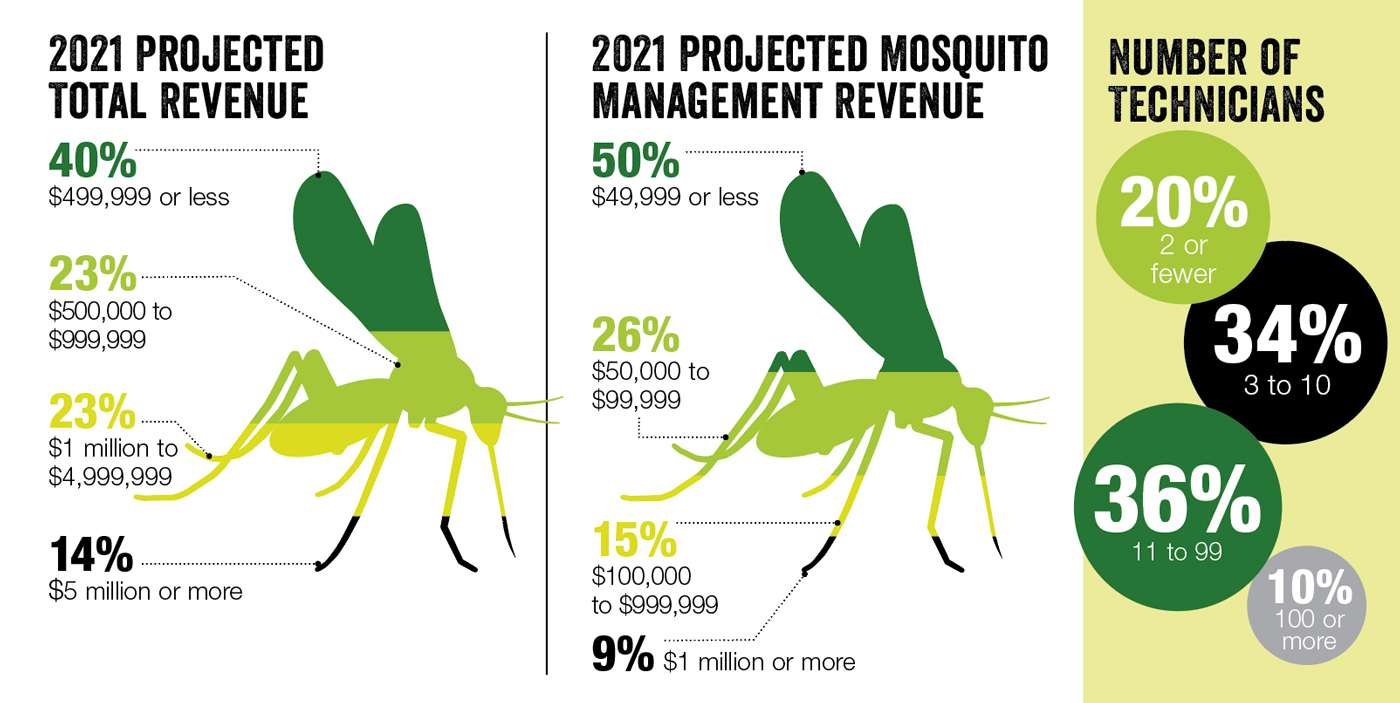
SOURCE: PMP MOSQUITO MANAGEMENT SURVEY CONDUCTED MARCH 2021; IMAGE: BUBAONE/DIGITALVISION VECTORS/GETTY IMAGES (MOSQUITO)
Encourage your technicians to share their knowledge with customers. A little education can go a long way when the goal is customer satisfaction.
“I’ve found myself getting into unwinnable battles when expectations aren’t set. Being educated about the different habitats, seasons and species native to your area is crucial,” says Nathan Curran, president of Home and Business Pest Control in Auburn, Mass. “A one-size-fits-all approach doesn’t always work with mosquito control.”

Bill Haynes
Bill Haynes, CEO of Haynes Exterminating in Buford, Ga., says he believes educating customers and setting realistic expectations is good business when offering mosquito management. “With any flying insect control, it’s fairly difficult to evaluate effectiveness,” he says. “It’s really important to understand the process, as it can help both the technician and the customer understand how what we are doing is impacting their environment in a positive way.”
Besides, Haynes adds, if customers are upset about the mosquito service you performed, it may affect their happiness with the other services you provide.
PMPs are doing their best to reduce callbacks, as PMP’s 2021 Mosquito Management Survey reveals 69 percent of those asked have a callback rate of 4 percent or less.
Educating customers and setting clear expectations is critical in all business transactions, McCullen says. “There is more buy-in from customers when they understand the ‘why’ behind the ‘what.’ Providing customers with a strong basis for why we do what we do usually will help motivate them to become a partner with us to solve their pest issues.”
In addition, failing to tell customers what they can expect from the services you offer may result in lost business. “Customers are more likely to discontinue a service because of a lack of perceived value more than any other reason,” he adds. “If customers completely understand what they are purchasing, and their part in the solution, they will be more committed to the success of the service.”
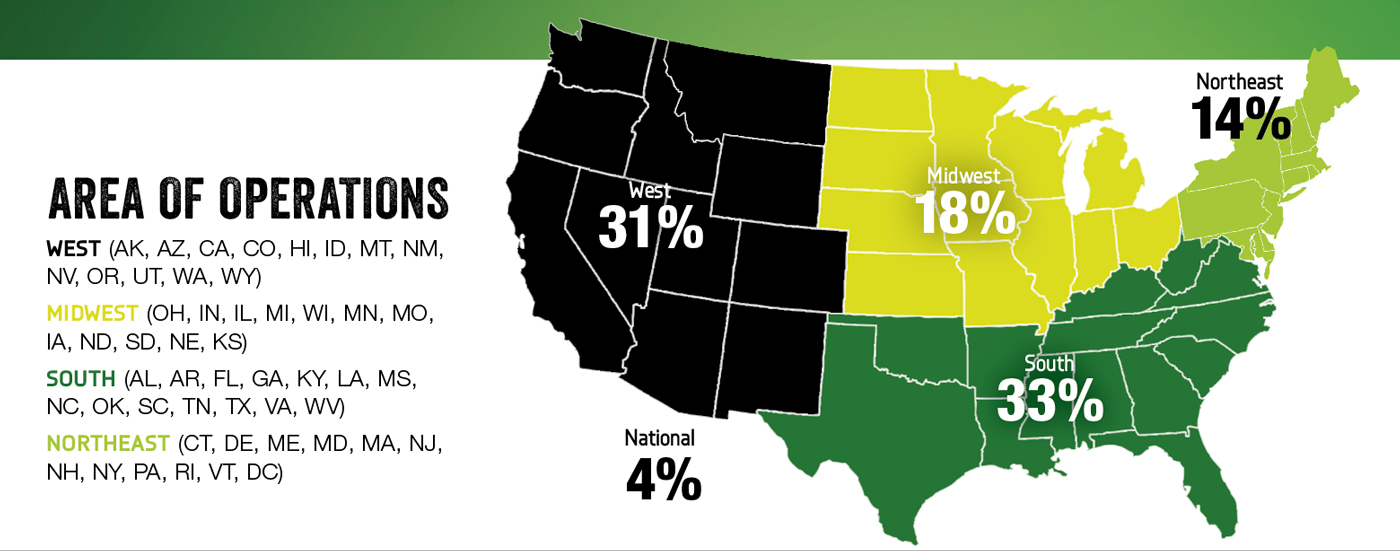
SOURCE: PMP MOSQUITO MANAGEMENT SURVEY CONDUCTED MARCH 2021; IMAGE: TINNAKORN/ISTOCK / GETTY IMAGES PLUS/GETTY IMAGES (MAP)
RISING DEMAND

Nathan Curran
Lately, mosquito management has proven to be a popular pest control service with customers. Homeowners who have been stuck indoors welcome the chance to get out in the fresh air and use their yards. Parents now hyper-aware of illness-causing viruses want their children to play outdoors in a safe environment that’s free from biting mosquitoes.
Fortunately, mosquito control services are beneficial to PMPs as well.
“Because mosquito management is a seasonal offering, it allows you to maximize the use of your employees’ time and add profit to your bottom line,” Barnett says. “It also supports a good perimeter pest control program.”
He suggests PMPs should never stop marketing their mosquito management services. When it’s cold outside, talk to customers about how your company can help keep mosquitoes in check when the weather gets better. “Advise them of how they will benefit from a service that starts before mosquitoes do,” Barnett adds. “Doing this in the winter sets the groundwork for the beginning of a successful summer season.”
Vogt offers solid reasons for offering mosquito management services. Homeowners are buying this service, so PMPs who do not offer it are missing out on additional revenue.
Although it may be a seasonal service, PMPs can set up their customers’ mosquito management program on a billing cycle that runs monthly or every six weeks, making its annual value the same or more than standard pest control service.
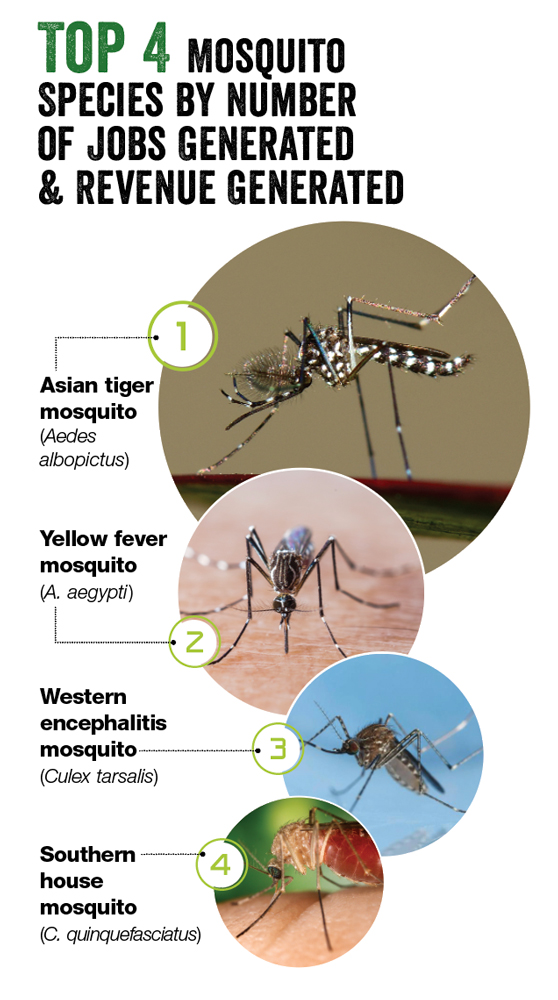
SOURCE: PMP MOSQUITO MANAGEMENT SURVEY CONDUCTED MARCH 2021; PHOTOS: IMNATURE/ISTOCK / GETTY IMAGES PLUS/GETTY IMAGES (1); TEPTONG/ISTOCK / GETTY IMAGES PLUS/GETTY IMAGES (2); JOSEPH BERGER, BUGWOOD.ORG (3); CDC/JIM GATHANY (4)
Haynes agrees, adding, “If your company has the ability to dovetail it into your current routing or create its own route, providing mosquito management services seems like a no-brainer.”
Mosquito control is exterior work, so services are easy to schedule, can be rolled into existing service routes, require little or no additional equipment, and can be completed in a relatively short time, Vogt says.
Customers value the peace of mind they get knowing they are able to enjoy the outdoors at dusk. “When Eastern equine encephalitis broke out in my service area in 2019, customers realized an effective mosquito treatment could be the difference between staying healthy and contracting a fatal illness,” Curran says.
Mosquito control helps protect customers from mosquito-borne viruses and diseases, including West Nile virus, the Zika virus, malaria, dengue, chikungunya, yellow fever and Eastern equine encephalitis. There is no evidence that mosquitoes transmit the SARS-CoV-2 virus, according to the Centers for Disease Control and Prevention.
“Let prospective customers know you are willing to go the extra mile to service their homes and surrounding areas so they can have an environment safe from the diseases mosquitoes may carry,” Carrillo says. “Tell them up-front you have a special seasonal package.”
Spread the word that you will be there from the beginning to the end of mosquito season.
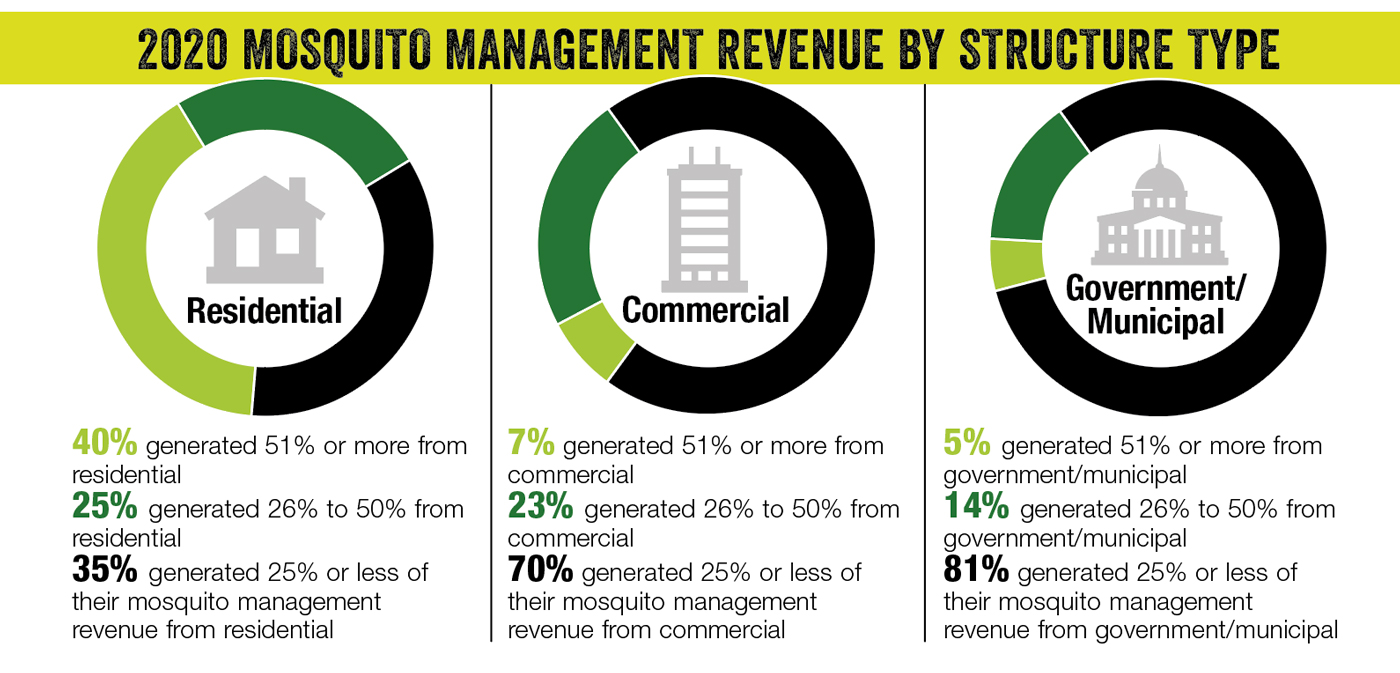
SOURCE: PMP MOSQUITO MANAGEMENT SURVEY CONDUCTED MARCH 2021; IMAGE: BROWNDOGSTUDIOS/ISTOCK / GETTY IMAGES PLUS/GETTY IMAGES (BUILDINGS)
ATTRACTING CUSTOMERS

Nathan Vogt
Vogt recommends PMPs sell their mosquito control services all the time, along with their full line of services. “Find a way to introduce the topic to both new and existing customers,” he says. “Train your techs to work it into their conversations, and don’t treat it as secondary service.”
Haynes says marketing mosquito control services to his company’s current customers is easy and rewarding.
At Home and Business Pest Control, Curran also offers mosquito control as an add-on service to existing customers. Referrals from neighbors can be lucrative, too. “Lawn signs also are surprisingly effective,” he shares.
Because marketing is expensive, PMPs should make it count, according to McCullen. He suggests focusing on two key areas:
1. Offer mosquito control as a value-added service to current customers. “Your current customers already trust you to protect their families and homes, so why not extend that protection to their yards as well?” he says.
2. Use timing and location to target your marketing to potential customers. You can stretch your marketing dollars if you focus on the right time, such as major holidays when people gather outside, and specific places, such as neighborhoods prone to mosquitoes, McCullen says.

John Barnett
Technicians are most likely a company’s most valuable sales tool, Barnett says. Give them the opportunity to market your services and find creative ways to incentivize them.
“In most instances, their approach to customers is straightforward,” he says. “They lack the tongue of a salesman, but will almost always present the facts in a way the customer can relate to.”
Because customers often develop good relationships with their technicians, they will trust recommendations presented to them. But be honest in your approach. “If a customer is not a good candidate for the service, tell them,” Barnett adds. Doing so is another opportunity to build trust.
Satisfied customers will continue to rely on PMPs for mosquito control services that will enable them to get out of their homes and enjoy the outdoors.
“Anything that helps make people’s lives better is a service worth offering,” Botts says.
The post Education sets expectations for mosquito management appeared first on Pest Management Professional.
from Pest Management Professional https://www.mypmp.net/2021/04/07/education-sets-expectations-for-mosquito-management/
Sacramento CA
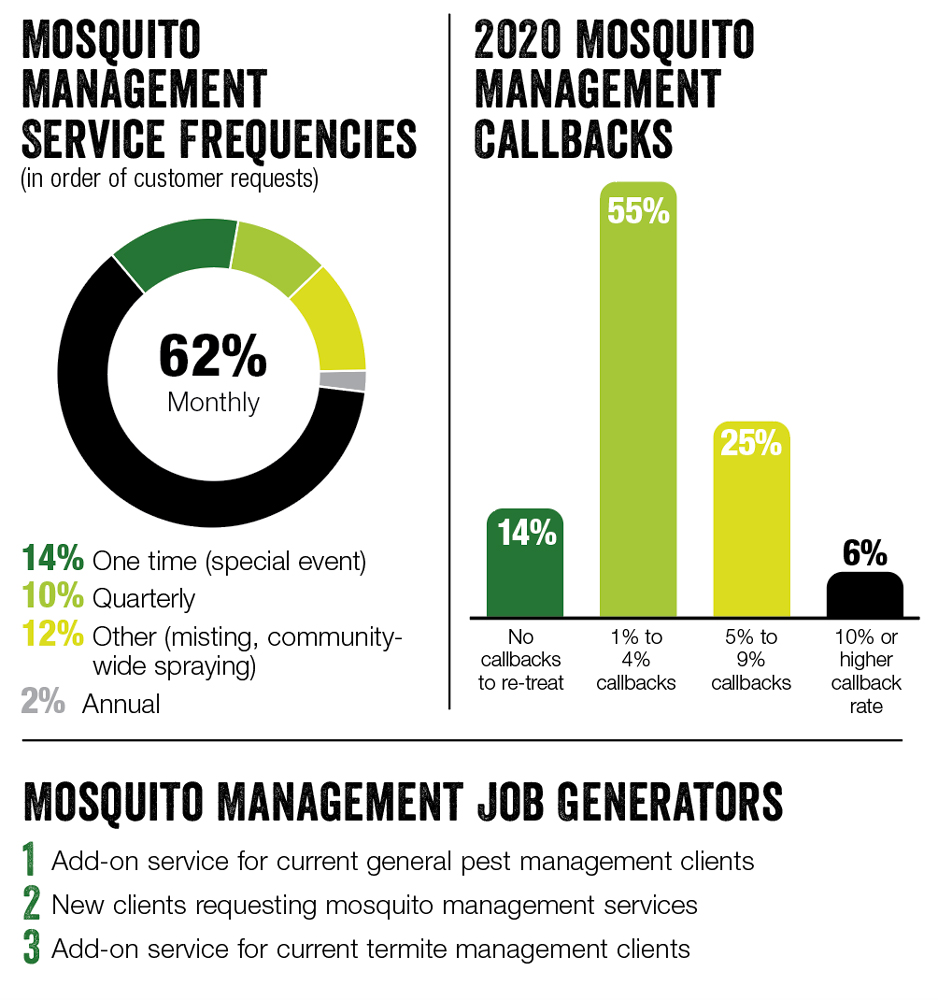
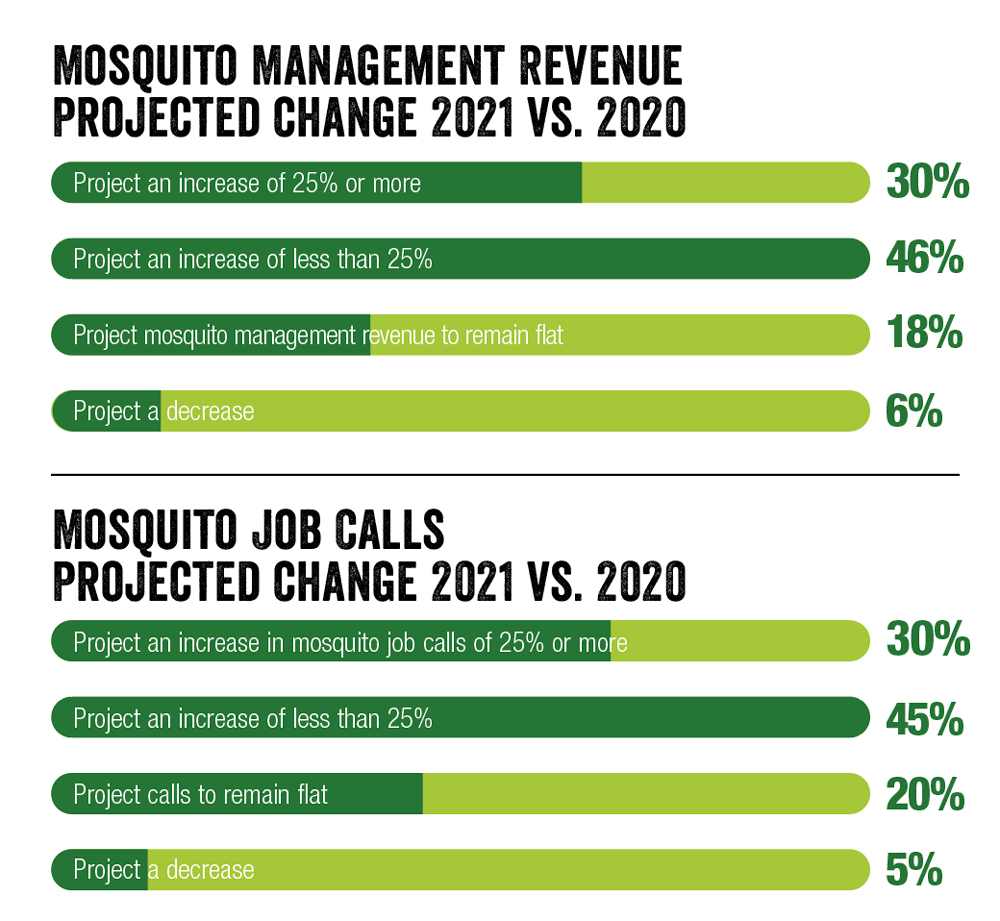
No comments:
Post a Comment